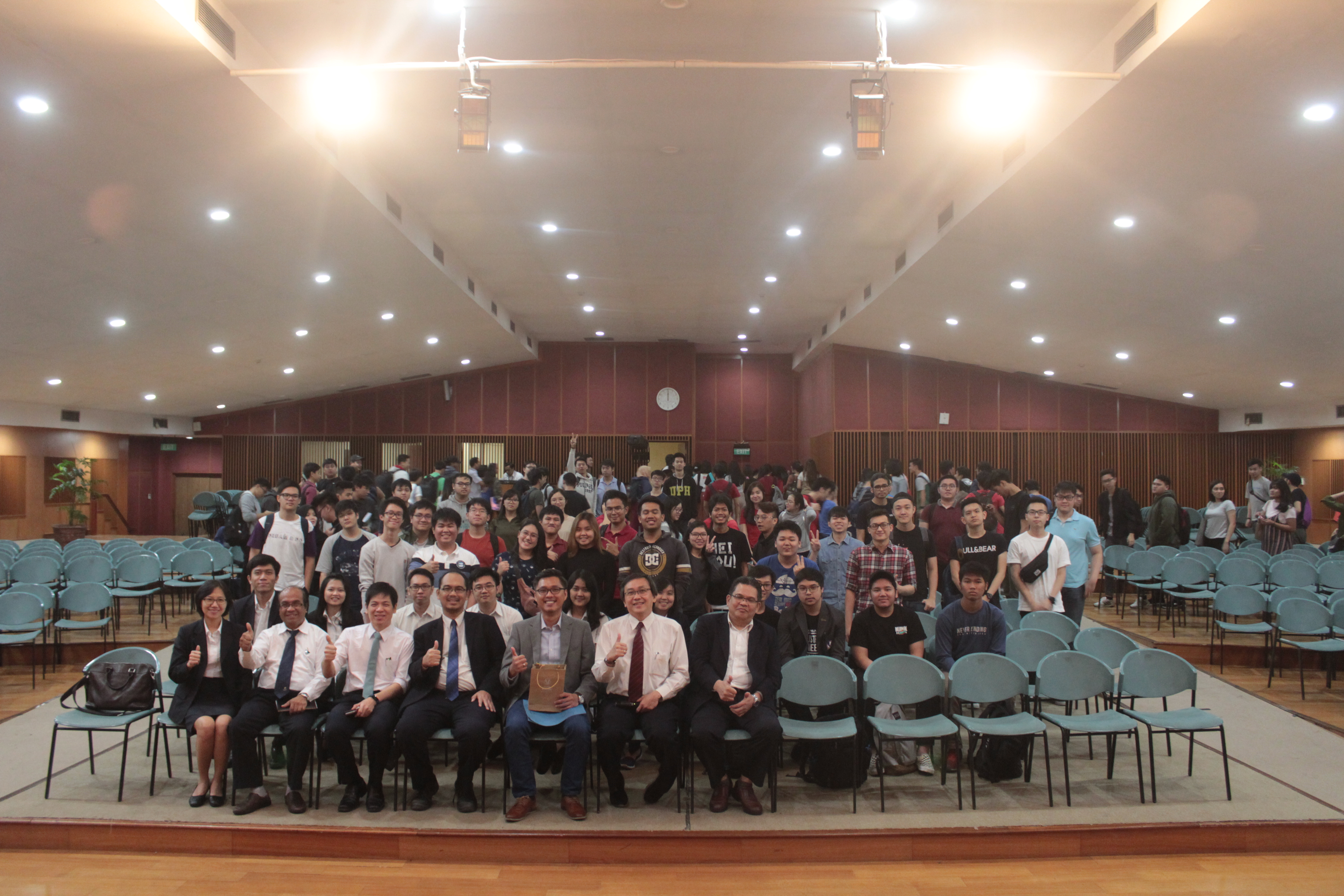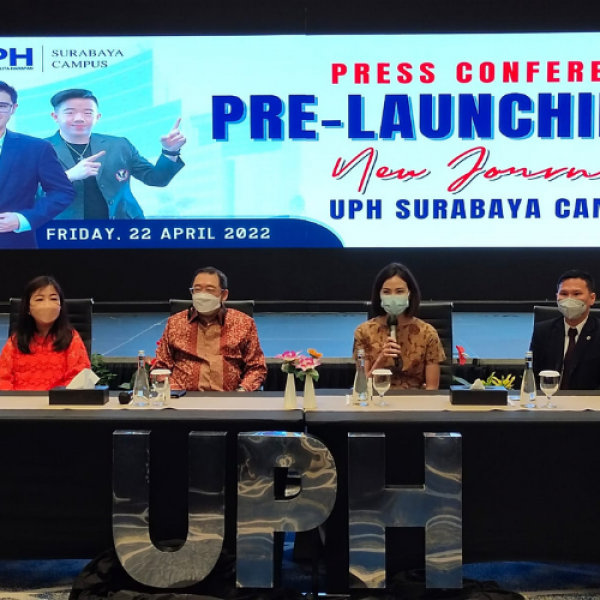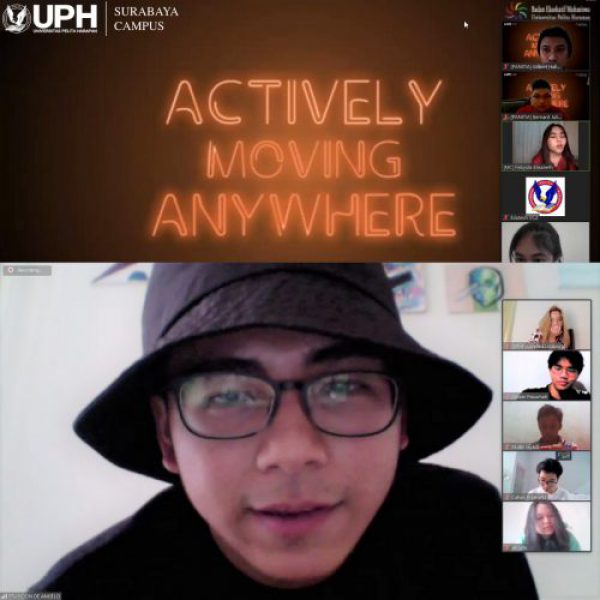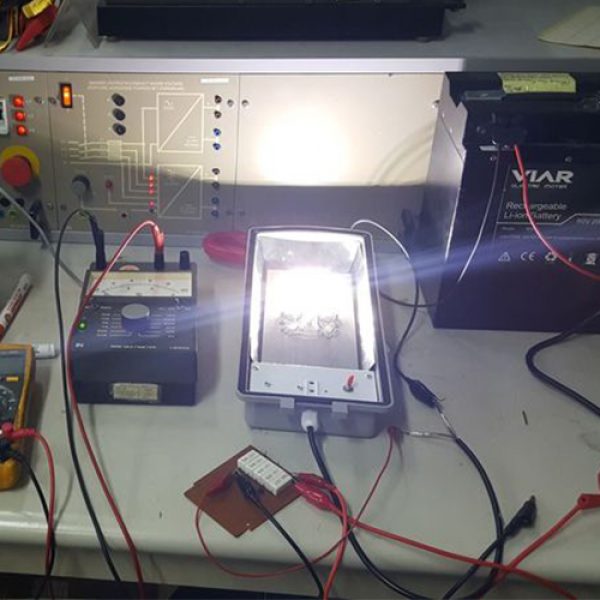2019
UPH and OVO Conducts a Public Lecture to Prepare for Big Data Technology Era.

In the past decade, big data technology is keep developing all over the world and found its application to business and political world. Big data can even help the science development in producing invention. Large companies in Indonesia have begun to realize the importance of big data, so they started to establish their own big data division.
This prompted University of Pelita Harapan (UPH) and OVO to hold a Public Lecture themed ‘Big Data Implementations-Application Layer Design’ with Riki Pribadi, Head of OVO’s Business Insights & Analytics Product as the interviewees on November 15, 2018 at Building D 501. Through this event, UPH hopes that the students will always get the latest information on developing technological trends.
This activity was a collaboration between the Electrical Engineering Study and the Industrial Engineering Study Program Program (from Faculty of Science and Technology) and the Information Systems Study Program (from School of Information System and Technology (SISTECH)).
In this public lecture, there was an explanation on how big data technology is able to process and to analyze many data to achieve company goals. By doing that way, the company can improve its performance while meeting consumer needs. For example, the company in food & beverage sector can figure out who are consumers who need information or certain promos.
“With big data technology, a company that already knows what its business questions can solve its business problems,” said Riki.
This public lecture provides adequate introductions for those who are not familiar with the big data field. At the same time, it provides the depth with a review about the technology behind the big data platform, implementation of the application layer, and examples of the cases handled by OVO data analytics team.
Dr. Henri P. Uranus, the Head of UPH Electrical Engineering, said that big data is one of the fields that is important in the era of Industrial Revolution 4.0.
“The field with a combination of statistics, computing, and programming is the one that controls it, a few steps ahead of its competitors in making strategic decisions because it has gained insight from an enormous data before developing its strategy,” Henri said.
According to I Made Murwantara, Ph.D, the lecturer of UPH SISTECH as well as an expert in software engineering graduated from University of Birmingham, UK, the big data trend in Indonesia will increase significantly because the internet penetration in Indonesia is quite high.
“Recently some startup companies are starting to appear, indicates the increasing demand for the use of big data technology,” Murwantara said.
Murwantara also added that SISTECH students must know well about the process of big data in general and focus on the big data that they want to master deeply, so they can compete in the industrial world.
Furthermore, Priskila Christine Rahayu, S.Si., M.T., the Head of UPH Industrial Engineering explained the importance of knowledge about this big data technology for the students.
“In Industrial Engineering Study Programs, many students process statistical data, so indeed this knowledge related to big data is very relevant to them. We hope that after the graduation, they can help a company to become more productive, efficiently and effectively,” Priskila explained.
This public lecture was a compulsory class for UPH Industrial Engineering students who take Information Systems Analysis and Design courses, as well as Enterprise Resource Planning. Whereas for SISTECH students, knowledge about big data has become the main lesson in the Frontier Technology course and has also been introduced to the lectures in Operational Research. In the same time, the students of Electrical Engineering can also see the red thread between big data with Business Technology course and Industrial Revolution 4.0 as well as Microcontrollers and IoT, also seeing the importance of Statistics and Probability courses.
In the future, UPH and OVO can work together to align what students get in theory with the reality of industrial world. The collaboration can be in providing seminars or conducting internship programs to increase the students’ capacity.



